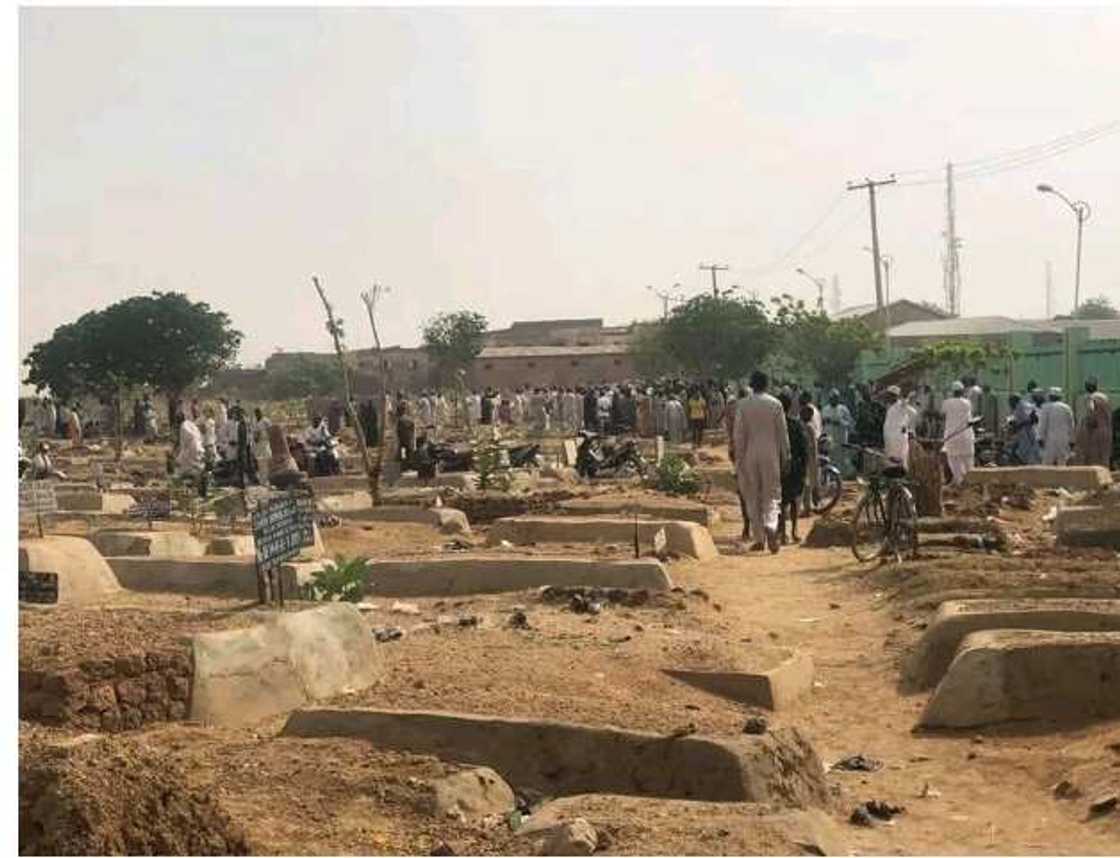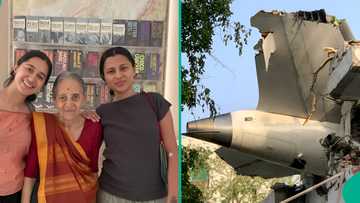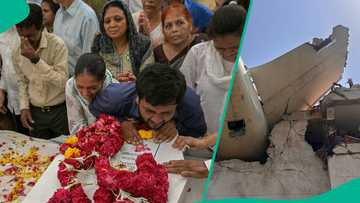Dark Past Exposed: Group Digs Remains of 800 Babies Buried in Motherless Baby Home
- A long-awaited forensic excavation has begun at the former Tuam mother and baby home in County Galway, where nearly 800 children are believed to be buried
- Investigators aim to identify remains through DNA testing and provide a dignified reburial, following shocking revelations by historian Catherine Corless in 2014
- Families affected by the tragedy, including survivors like Annette McKay, hope the dig will finally uncover the truth and offer long-overdue closure
A long-awaited forensic excavation at a former ”mother and baby home” in Tuam, County Galway, commenced today, with investigators hoping to uncover the remains of almost 800 babies and children believed to be buried at the site.
The excavation follows years of advocacy and research, led by local historian Catherine Corless, who uncovered records revealing the deaths of 798 children at the home between 1925 and its closure in 1961.

Source: Getty Images
Tuam mass grave discovery
Many of the deceased children are believed to have been discarded into a former sewage tank, known as "the pit." Research by Ms Corless found that only two were buried in a nearby cemetery, leaving 796 presumed to be interred at the site.

Read also
Air India: Lady mourns 'auntie' who died in crash, shares what she did after entering any aeroplane
"I'm feeling very relieved," she told Sky News as the excavation began. "It's been a long, long journey. Not knowing what's going to happen, if it's just going to fall apart or if it's really going to happen."
Her groundbreaking findings, published in 2014, exposed one of Ireland’s darkest chapters—where unmarried mothers were sent to institutions and separated from their children, often with devastating consequences.
Forensic investigation begins
A decade after the initial revelations, a team led by investigator Daniel MacSweeney will conduct forensic excavations that could take up to two years. The priority is to identify as many remains as possible through DNA testing, ensuring a dignified reburial.
For families like Annette McKay’s, this development brings hope. Now living in Manchester, Annette’s mother, Margaret "Maggie" O’Connor, was sent to Tuam after being raped at 17. Her infant daughter, Mary Margaret, died at just six months old.
Annette recalls her late mother’s distress upon learning of her child's passing: "She was pegging washing out and a nun came up behind her and said 'the child of your sin is dead'."
Now, Annette hopes her sister’s remains can be exhumed and laid to rest with their mother. "I don't care if it's a thimbleful for me to be able to pop Mary Margaret with Maggie. That’s fitting."

Source: Twitter
Ireland confronts past wrongs
For Annette, Tuam stands as a symbol of a different time in Ireland—one where victims of rape, incest, and violence were confined in institutions, while their children were taken away.
"My mother worked heavily pregnant, cleaning floors, and a nun passing kicked my mother in the stomach. And when that place is opened, their dirty, ugly secret, it isn't a secret anymore."
Following an inquiry into Ireland’s mother and baby homes, the government issued a formal apology in 2021, acknowledging an "appalling level of infant mortality." Taoiseach Micheál Martin remarked that Irish society had "a completely warped attitude to sexuality and intimacy," forcing young mothers and their children to endure unimaginable suffering.
The Sisters of Bon Secours, who ran the Tuam home, admitted that children were "buried in a disrespectful and unacceptable way" and offered financial compensation.
Seeking justice and closure
As the excavation continues, the town of Tuam grapples with its history. Ms Corless reflected on the troubling legacy of the institution: "The church preached to look after the vulnerable, the old, and the orphaned, but they never included illegitimate children for some reason or another in their own psyche."

Read also
Air India: UK-based sisters who travelled to India for grandmother’s birthday die in plane crash
"I never, ever understand how they could do that to little babies, little toddlers. Beautiful little vulnerable children."
With the excavation underway, families and advocates hope that the remains can be properly identified and finally laid to rest with dignity.
Obi emotional as he visits gravesite in Nigeria
Legit.ng earlier reported that Peter Obi, the Labour Party (LP) candidate in the 2023 election, visited the site of the tragic petrol tanker explosion, the gravesite, and also the Sarkin Dikko place along the Dikko-Maje Road in Suleja, Niger state.
Legit.ng reports that Obi embarked on the visit on Wednesday, January 22.
Source: Legit.ng



